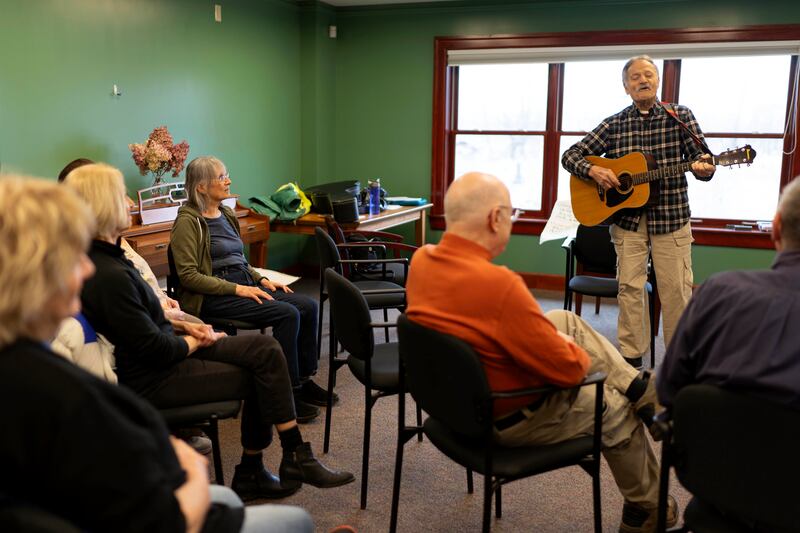Lost keys and momentary memory lapses don’t seem like a big deal when you’re a young or middle-aged adult. But older adults may worry that they herald something more sinister.
Memory lapses — and everyone has them sometimes — are one place where ignorance is not bliss, as the old saw goes. If they’re a normal part of aging, you can set aside the stress. If they’re not, it’s important to address issues as soon as possible. To that end, the Alzheimer’s Association recently sent out a news release on the importance of asking a doctor if your memory issues are a real concern.
As many as 1 in 9 people in the U.S. age 65 and older has Alzheimer’s dementia. And national studies suggest as many as 22% of people that age have mild cognitive impairment, which can be a precursor to Alzheimer’s. About a third of older adults have one or the other.
The news release notes that Medicare provides a free annual wellness visit for those 65 and older, and asking the doctor to include a brain health assessment makes sense. But the association warns that when someone doesn’t see a family physician regularly, that doctor may not know the patient well enough to determine if there are cognitive changes.
So the association developed a list of six questions that individuals or family members can ask the doctor to get to the bottom of any memory concerns. If problems are confirmed, that can be a first step in finding direction on what to do, as well. Experts at the Alzheimer’s Association suggest asking these questions:
- Do I (or the patient, if a family member is asking) have any medical conditions that could increase my risk for developing Alzheimer’s disease or another form of dementia?
- Could any of my medications be causing memory or cognitive-related issues?
- What tests could you perform that might rule out Alzheimer’s or dementia?
- Do you know my family history, especially that of grandparents, parents or siblings related to Alzheimer’s?
- Should I be concerned about (talk about changes in memory, focus, thinking or mood)?
- Can you refer me to a geriatrician or neurologist?
Stacie Kulp, the executive director of the Alzheimer’s Association of Utah, calls the list a “good starting point for having a productive conversation with your family doctor.”
She recommends writing down the questions and any examples or concerns that you might have and bringing them with you to the appointment with your physician. “There can be a number of reasons behind memory loss and personality change, so it’s important to get guidance from your doctor as early as possible.”
The association reports that roughly 20% of all Medicare funds are spent on people with some form of dementia, of which Alzheimer’s is the most common. In addition to that, in 2023, the association said that 11.5 million Alzheimer’s family caregivers provided 18.4 billion hours unpaid care worth an estimated $346.6 billion, using the median cost of a home health aide to make the estimate.
Individuals with immediate questions are encouraged to call the association’s free, always staffed helpline to get guidance and support. The number is 1-800-272-2900. Or go online to www.alz.org.
A Utah conference
In Utah, an estimated 38,300 people have Alzheimer’s and 998 died in 2021, the most recent year for which full data is available.
Utah residents are being invited to a free Alzheimer’s & Caregiving Educational Conference on Wednesday May 15, from 10 a.m. to 1 p.m. at the Embassy Suites by Hilton, 3524 S. Market St., West Valley City. The free conference will feature experts in Alzheimer’s research, brain health, caregiving and advance planning. To register, visit www.alzfdn.org/tour. Advance registration is recommended as space is limited.
Free, confidential memory screening will also be available throughout the day.
The event is sponsored by the Alzheimer’s Foundation of America.


